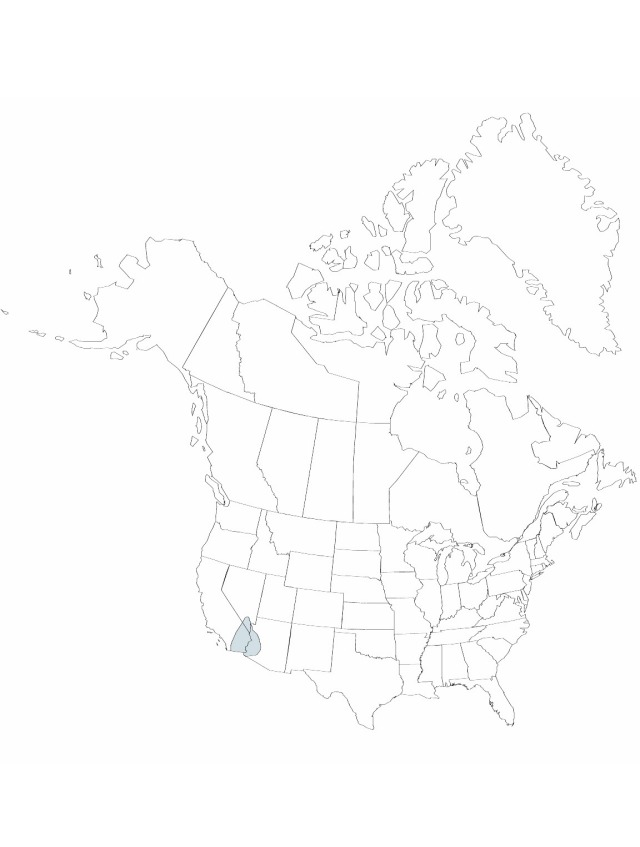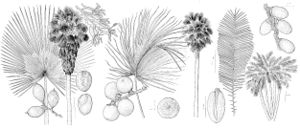Washingtonia filifera
Bot. Zeitung (Berlin) 37: 61. 1879.
Stems massive, to 1.5 m 100–150 cm diam. 2n = 36.
Phenology: Flowering spring–summer.
Habitat: Native to desert washes, seeps, and springs where underground water is continuously available
Elevation: 100–1200 m
Distribution

Ariz., Calif., Nev., Mexico (Baja California).
Discussion
L. H. Bailey (1936) cited S. Watson, not H. Wendland, as the combining authority of this species, believing that Wendland did not explicitly make the new combination. The combination was made, however, by the journal editor, Anton de Bary, in the index to the volume, appearing on page (column) LXI. Hence, de Bary, not Watson, is the combining author (J. L. Strother, pers. cComm.).
Naturalized populations of this species were reported at four sites in Nevada (J. W. Cornett 1987) and in Death Valley National Monument, California (J. W. Cornett 1988). L. R. McClenaghan and A. C. Beauchamp (1986) found low genetic variation among populations of Washingtonia filifera. V. J. Miller (1983) discussed the history and setting of W. filifera in Arizona.
Of conservation concern.
